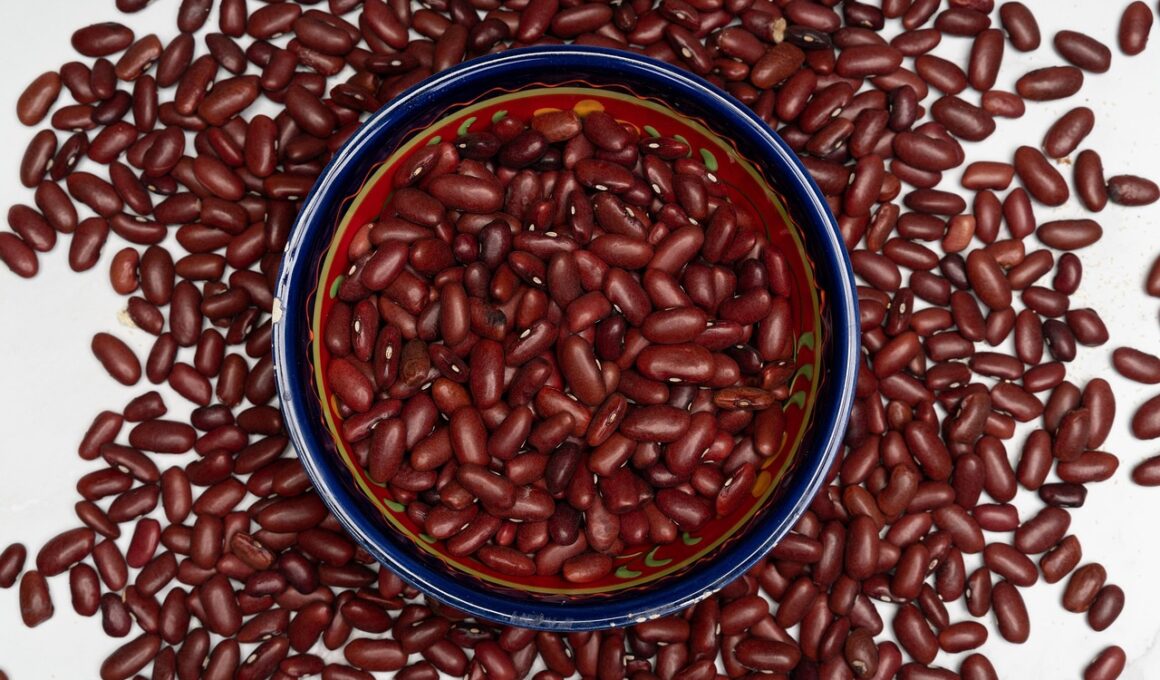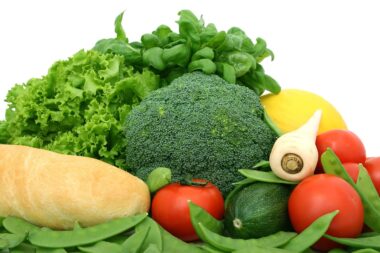Low-Phosphorus Diet Tips for Dogs with Kidney Problems
Dogs suffering from kidney disease require special attention regarding their diet, particularly concerning phosphorus intake. Generally, high phosphorus levels can exacerbate kidney issues and lead to further health complications. A low-phosphorus diet is essential to help manage these health concerns effectively. When transitioning your dog to a low-phosphorus diet, it’s crucial to consult your veterinarian first. Your vet will evaluate your dog’s condition and can provide recommendations tailored to their specific health needs. Additionally, proper meal planning is vital when switching diets. Focus on incorporating high-quality proteins that are lower in phosphorus, such as specific cuts of chicken and turkey. Avoid feeding processed meats, which tend to have higher phosphorus levels. Along with protein sources, ensure your dog’s meals include various fruits and vegetables to offer essential nutrients without overloading them with phosphorus. Gradually introducing these foods will help your dog adapt better. Always monitor your dog’s response to dietary changes and report any concerns to your veterinarian immediately. With proper care and attention to their diet, your dog can still enjoy a good quality of life despite kidney problems.
To better manage your dog’s kidney health, consider preparing homemade meals as they allow you to control the ingredients and their phosphorus content precisely. Homemade diets can be tailored to meet your dog’s unique nutritional needs without relying on commercial pet foods, which often contain hidden higher phosphorus levels. Employing ingredients such as lean meats, specific vegetables, and grain alternatives can create wholesome meals for your dog. It’s also important to avoid certain foods that can be harmful, such as organ meats and fish which are typically rich in phosphorus. Additionally, use healthy fats to enhance the flavor and palatability of your dog’s meals, making it more enjoyable for them to eat. Involving your veterinarian or a pet nutritionist in designing your dog’s homemade meals can provide additional peace of mind. They can offer alternatives and ensure nutritional adequacy. Remember that a gradual transition into homemade meals will aid digestion and acceptance. Monitoring your dog’s weight and overall health is crucial during this transition. Regular veterinary check-ups will help assess how well the new diet is helping manage their kidney condition, ensuring your dog remains healthy and comfortable.
Hydration and its Importance
Ensuring your dog has access to fresh, clean water at all times is fundamental, especially when they are undergoing treatment for kidney disease. Hydration plays a significant role in kidney health, as it aids in filtering out waste products, reducing strain on the kidneys. Increased fluid intake helps diminish the concentration of harmful substances in the blood. You can encourage your dog to drink more water by providing multiple water bowls around the house or utilizing pet water fountains that keep the water circulating and fresh. Moreover, consider incorporating moisture-rich foods into your dog’s diet. Wet dog food or adding water to dry kibble is a simple way to increase their fluid intake. Incorporating broth—low in sodium and phosphorus—can make meals even more enticing for your dog. If your dog is reluctant to drink water, consult your vet for alternative ways to keep them hydrated. Monitoring urine output is also crucial; a decrease may indicate dehydration, while an increase can indicate kidney dysfunction. Keeping your dog hydrated is an important strategy in managing their kidney disease effectively and ensuring their well-being.
When dealing with kidney disease in dogs, regularly monitoring your pet’s body condition is essential. Changes in body weight can signify how effectively your dog’s diet is managing their health conditions. It is advisable to weigh your dog regularly and keep track of any changes. A weight loss might indicate insufficient nutrient intake, while research indicates that excessive gain can mean an unhealthy caloric intake or lack of physical activity. Creating a consistent feeding schedule can help maintain a stable weight. Include a balanced quantity and quality of food according to your dog’s specific energy needs. Regular exercise is also vital. Ensure your dog engages in light exercise to promote a healthy weight while preventing stiffness and enhancing overall well-being. Consult with your veterinarian to devise an ideal exercise routine that aligns with your dog’s condition. Also, having a compliance checklist can aid in maintaining a clear view of your dog’s dietary and health needs. Track any noticeable changes in behavior that could indicate discomfort or health issues, allowing for timely veterinary intervention. Consistent monitoring ensures the best care for your dog, improving their diet and lifestyle quality.
The Role of Supplements
Including dietary supplements can enhance your dog’s well-being while managing kidney disease effectively. Supplements such as Omega-3 fatty acids, probiotics, and antioxidants can provide additional health benefits to support your dog’s condition. Omega-3 fatty acids, found in fish oil, are known for their anti-inflammatory properties and can help improve kidney function. Probiotics contribute to better digestion and help maintain gut health, which is particularly important when food intake changes. Also, certain antioxidants can protect the body from harmful effects caused by waste buildup due to reduced kidney function. However, it’s vital to consult your veterinarian before introducing any supplements to ensure they complement your dog’s diet. They will help identify which supplements your dog might benefit from based on their specific needs. Additionally, don’t forget the importance of proper dosing, as too much of a good thing can also lead to problems. Regular blood tests and health assessments will guide you in adjusting supplement needs as kidney disease progresses. Carefully managing these supplements plays a significant role in developing a comprehensive care plan for your dog.
Maintaining an optimal environment for your dog living with kidney disease is equally essential as nutritional management. Stress can have detrimental effects on your dog’s health. Thus, creating a calm and safe living space will help alleviate anxiety. This can be achieved through a consistent routine, comfortable resting areas, and ensuring a peaceful atmosphere. It’s also beneficial to provide mental stimulation through interactive toys or low-stress games to keep your dog engaged. Regular socialization with other pets and humans is also crucial, but watch for signs of overstimulation. Reducing stress contributes positively to your dog’s overall health and well-being. Additionally, be vigilant about avoiding exposure to toxins, including certain plants and chemicals, which can further burden the kidneys. Learning what to avoid will help create a safer home. Consult with your veterinarian on additional health checks and preventative measures tailored specifically to your dog’s needs. Keeping their environment safe and nurturing allows them to feel more like themselves, which is vital to their quality of life. Fostering a loving environment will play a role in their emotional health, positively impacting their physical condition.
Regular Veterinary Visits
Ultimately, regular check-ups with your veterinarian are the cornerstone of effective management of your dog’s kidney disease. These visits allow for continuous monitoring of your dog’s condition and help to adjust their treatment plan according to their needs. During these appointments, your vet will perform necessary laboratory tests to assess kidney function and monitor blood levels, ensuring the well-being of your dog is prioritized. Consistent analysis will also highlight any troubling trends that might necessitate intervention. Having open communication about your dog’s dietary intake and health changes during these visits can provide invaluable data for your veterinarian. They can often suggest adjustments in diet, activities, or medication based on the latest assessments. Following their recommendations closely is just as crucial as keeping an eye on your dog’s day-to-day health status. This collaborative approach tailors the best care solutions for your dog while maximizing their quality of life. Remember, proactive management and open lines of communication can make a significant difference in living with kidney disease, and ultimately result in a much happier, healthier dog.
In conclusion, caring for dogs with kidney disease requires a dedicated approach to their diet and overall health management. Adopting low-phosphorus meal plans, hydrating them consistently, and monitoring their body condition will collectively enhance their quality of life. With proper nutritional strategies, including specialized diets and appropriate supplements, alongside regular veterinary visits and a stress-free living environment, dog owners can significantly influence their pet’s health positively. It is essential to involve veterinary professionals in every step to tailor a plan that meets individual requirements, ensuring optimal care throughout the progression of the disease. Furthermore, it’s crucial to remain observant of any changes in behavior, weight, and habits, promptly addressing them with veterinary care. Your commitment to your dog’s nutritional needs and lifestyle adjustments will directly impact their happiness and longevity, empowering owners to play an active role in their pet’s health journey. Remember, every dog is unique, and what works for one may not work for another, so be willing to adapt. Ultimately, your love and dedication will help manage kidney disease successfully while providing your beloved dog with the best possible life.





